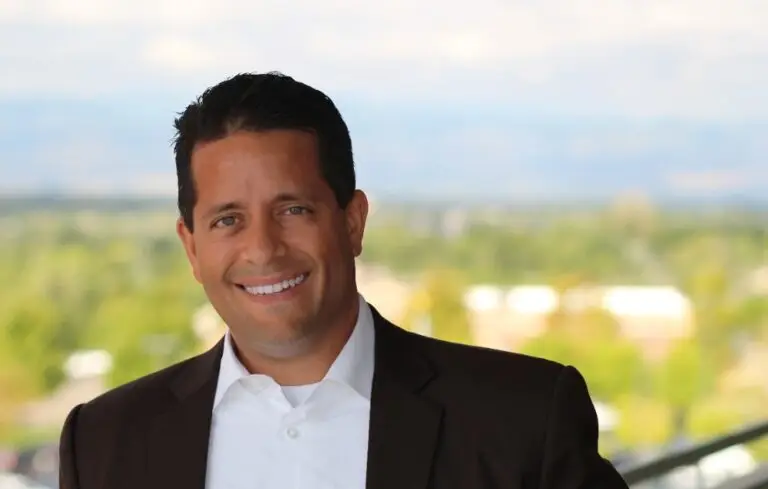Business school textbooks are littered with stories of once high-flying companies that failed to evolve as their industries and competitive landscapes transformed.
BlackBerry, once the far-and-away dominant force in the smartphone industry, missed opportunities to innovate and was overtaken by Apple and Google. Video rental giant Blockbuster was too slow to respond as streaming platforms emerged. Eastman Kodak, one of the most prestigious brands in U.S. history, was late to embrace the digital era and paid the price.
In today’s service-driven economy, companies seeking to avoid joining this notorious list must offer more than just a commoditized service or product where price is the primary competitive attraction. Those eager to expand, deepen and elongate customer relationships, as well as accelerate sustainable growth, must evolve to become providers of high-value managed services.
Service-oriented companies are better positioned to engage customers on a deeper and more meaningful level. Companies offering value-added services move up value chains with greater speed and ease. They can extend and expand relationships with existing customers and pursue new market opportunities, all of which ultimately increases revenue.
Examples can be found in the telecommunications space, where leading mobile providers are offering a range of non-traditional services beyond basic connectivity. AT&T and Comcast now offer smart home services along with subscription-based content streaming. Microsoft and Adobe have moved from selling boxes of software to licenses, subscriptions and service plans. Caterpillar, the leading manufacturer of construction equipment, is now also a digital services company providing automation services.
Companies eager to advance from selling commoditized products, where purchasing decisions are often based on price, to managed services, where decisions are driven by value and relationships, should consider the following:
1. Prepare Operationally and Technically
As a product company, engagement with customers was likely quite limited. In some cases, it may have ended with the completion of the transaction. As a provider of managed services, however, you will have an ongoing and much deeper rapport with end users of your service. You will need to understand the ongoing requirements your customer expects and demands, and ensure you have the operational and technical ability to meet those needs.
In its early days, Intelsat was primarily a provider a satellite bandwidth. Customers would purchase bandwidth, but the responsibility for managing their networks was their own. As global programming and the demand among broadcasters to move content around the world emerged, Intelsat responded by building a terrestrial fiber network and launching a new constellation of more powerful satellites, essentially investing in the operational capability to move from selling capacity to delivering services to customers across a variety of industries from media to telecom and beyond.
Enterprises eager to take this journey must adopt and deploy the tools and applications that will allow you to manage down to the end-user levels and gain real-time visibility into customer activity and usage. Acquire the technical capabilities that enable you to monitor the performance of your systems, resolve issues proactively, and deliver superior customer care experiences no matter where your users are located.
2. Leverage Access to New Insights
In addition to delivering more value, the evolving relationship you will enjoy with customers as a managed services company will provide greater clarity as to the true needs and demands of your customers. These insights and learnings can and should inform improvements in the products and services that will further increase your value.
Before its 2020 acquisition of Gogo, one of the earliest providers of inflight connectivity, Intelsat was delivering satellite bandwidth to airplanes but had no real visibility into the needs of passengers and airlines or a roadmap that would allow the company the stay ahead of future demand. By working intimately with airlines, the company now has a deeper understanding of passenger needs and usage habits and can design solutions based on feedback and knowledge of real-world usage.
Similarly, enterprises must be equipped to solicit, collect and act upon the constant feedback this model will produce. Be willing to absorb new ideas and implement solutions, even those that may deviate from original plans and forecasts. Consider how learnings and successes in one sector can be repurposed in new markets.
3. Secure the Right Expertise
Even after investing in the tools and technologies and aligning your operations processes, managed services providers need to employ people with intimate industry knowledge and expertise. Recruit individuals who can speak the language of your end users across the various vertical markets you are targeting, even if they don’t have the extensive technical expertise that was once a prerequisite for employment.
As Intelsat sought to parlay its burgeoning managed services experiences in aviation and broadcasting to move into new mobility markets, such as smart farming and construction, the company recruited and retained experts who understood the unique requirements of each vertical market and could advise on how best to structure solutions.
Once they join the organization, give these experts the time needed to understand your business and the freedom to design the right model and approach that will resonate with the intended target audiences and drive commercial success.
4. Rally the Troops
An organizational transition of this magnitude will undoubtedly have implications for the composition of the workforce. You may have long-standing employees who have been successful in selling the company’s legacy products or services a certain way, resistant to the idea of being asked to adopt and embrace a new mindset and unnerved by the influx of new personalities and titles. By engaging the organization’s employees at the earliest stages of the transition, explaining the commercial drivers, soliciting feedback, and providing even the naysayers the opportunities and avenues to contribute, you will engender greater buy-in and enthusiasm among the rank-and-file.
5. Preserve Your Legacy
Success in introducing managed services does not require the complete abandonment of your legacy business. Some of your customers may prefer to continue buying your products or services as they always have, at least for the time being. Organizations can pursue this transformation without relinquishing the heartbeat of what had been started or forfeiting solid and trusting relationships with long-standing customers. Managed services can be slowly introduced as part of an ala carte menu of options.
Engaging in this transition is not an overnight proposition. It necessitates a significant transformation of the company, processes, and platforms. The nature and structure of the services themselves, how revenue will be realized, the composition of customer engagement teams and the expertise needed within the organization must all be considered.
A successful transformation will take time, commitment and fortitude to stay on path even as inevitable challenges arise. By clearly defining objectives, securing the right leaders, taking risks, and turning to outside support when needed, any organization can evolve and deliver deeper levels of value that strengthen customer relationships, expand market opportunities and drive revenue growth.







